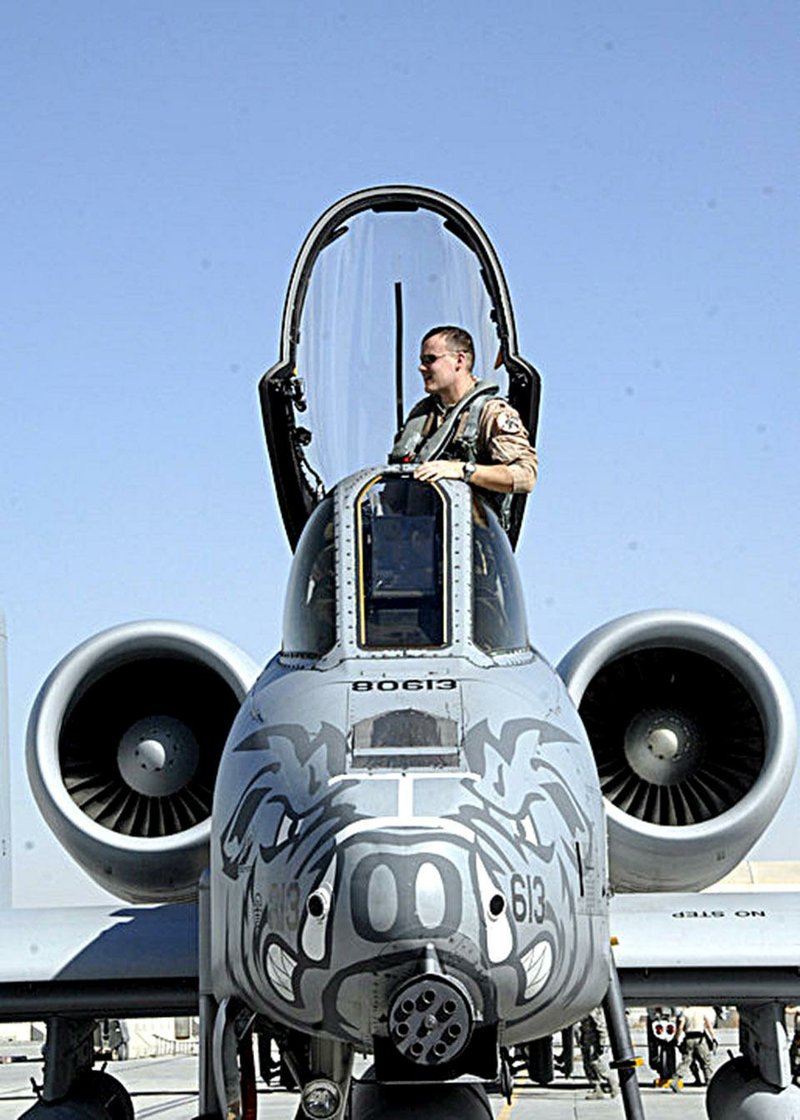WASHINGTON -- The Warthog is not dead yet.
Despite attempts by the Air Force to retire the A-10 Thunderbolt II, nicknamed for its toughness and one of the military's most beloved airplanes, a scrappy band of lawmakers has put up a fight that has started to yield some results.
But if the A-10 survives, the Air Force warns, the already delayed introduction of the F-35 Joint Strike Fighter will possibly face another setback.
For months, the Air Force has said it can no longer afford its fleet of A-10s, a decision that came to symbolize the effects of the across-the-board budget cuts known as sequestration. But recently it has been forced to soften its stand and is now suggesting compromises that would slow down the aircraft's retirement.
But it has also warned that if Congress does not allow it to retire the fleet, the Air Force won't be able to transfer hundreds of maintenance workers from the A-10 to the F-35, as originally planned, which could further delay the program just as manufacturer Lockheed Martin is ramping up production.
"We're really in a crunch now," Air Force Secretary Deborah Lee James said in an interview at the Reagan National Defense Forum. "We're looking at, are we going to delay the Joint Strike Fighter? That would be awful. Are we going to underman the very aircraft that are most needed in this latest fight against" the Islamic State?
The A-10 is a slow-flying aircraft designed to stay close enough to the ground so that pilots can distinguish friend from foe, even with their own eyes. Often called the military's ugliest aircraft, it is armed with a 30mm cannon that can destroy a tank, and a "titanium bathtub" belly designed to absorb ground fire.
It is beloved by soldiers and airmen alike, who say that it saved countless lives in Iraq and Afghanistan and that its ability to take out the enemy at close range is unparalleled.
A group of former service members who served as joint terminal attack controllers, or JTACs, who advise ground commanders on how best to deploy air power in combat, recently wrote in a letter to senior Pentagon leaders that the elimination of the A-10 "will cost American lives."
"When under enemy fire and about to be overrun, JTACs look over their shoulders and pray an A-10 is there -- knowing that nothing reassures and protects friendly forces and scatters and destroys enemy forces like an A-10," they wrote.
But the Warthog is aged and has only one mission, Air Force officials say: providing close-air support to troops on the ground. Other aircraft can perform that mission -- and a variety of others, Air Force officials say. And with the budget cuts, James said the Air Force has no other choice. Retiring the A-10 fleet would save $4.2 billion over five years, she said.
"If you can't have everything -- and we can't because realistically speaking the budgets won't allow it -- you have to make tough choices," she said. "We've looked at 11 different ways to possibly do this, and there are no good solutions. So we went back to Congress and said, 'Look, we're between a rock and a hard place, is there no compromise that we can develop together?'"
So far, the reaction from some powerful members of Congress has been a steadfast no.
The House and Senate have moved to prevent the Air Force from retiring the A-10 this fiscal year. And the aircraft has received strong support from Sen. John McCain, R-Ariz., who is poised to become chairman of the Armed Services Committee.
In a recent news conference, he vowed to fight the Air Force's plan to retire the fleet, saying: "This fight is far from over. We all know it's the best platform. There's no doubt about that."
Sen. Kelly Ayotte, R-N.H., rebutted the Air Force's assertion that not being able to divest the A-10 would delay the F-35 program, which is scheduled to achieve what's called initial operating capability in late 2016. Congressional aides have said the Air Force could use contractors as mechanics or transfer members from the Reserve forces to do the work -- but Air Force officials said that was not tenable.
"So now we're trying to pit the F-35 against the A-10," Ayotte said. "It's a false choice. There are other ways we can ensure the F-35 continues and the A-10" as well.
But Air Force officials say it's simple math. Each F-35 requires a crew of 20 to check the aircraft before and after flights, perform scheduled inspections and maintenance, and make repairs.
The Air Force had expected to be able to transfer experienced aircraft mechanics from the A-10 fleet to the F-35, which is still in the development stages, and other aircraft such as the F-15 and F-16. When Congress would not allow it, the Air Force planned to raid the staffs of other aircraft even though they were already short. But with the air campaign against the Islamic State, the Air Force has been unable to do that, officials said.
As a result, the F-35, the next generation darling of the Air Force that is expected to replace several airframes, is getting short shrift, delaying its use. Last fiscal year, there were 748 maintenance workers assigned to the F-35, or about 70 percent of the needed total. This fiscal year, the figure would be 55 percent, and next year 47 percent if the Air Force is not allowed to retire the Warthog.
"Something's got to give," said one senior Air Force official.
SundayMonday on 11/23/2014
